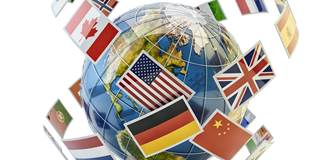Reclaiming Multilateralism
Since the dawn of civilization, humankind has gradually formed ever-larger cooperative networks, first by changing minds, and then by changing institutions. But with nationalist forces around the world threatening to reverse that progress, proponents of multilateralism will need to show why international cooperation is not just valuable, but necessary.

KIEL – In country after country, populists are beckoning voters to pursue atavistic dreams of national glory and abandon international commitments and multilateral cooperation. This is the age of “America first,” “Take back control,” and “Hungary belongs to the Hungarians” – to cite just a few of the slogans one hears nowadays.